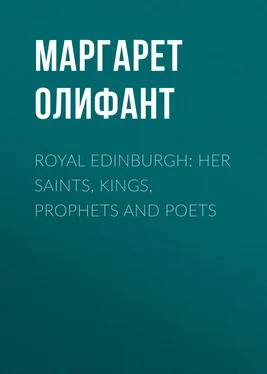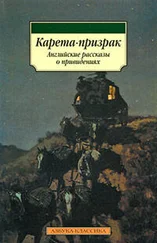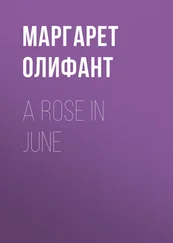Маргарет Олифант - Royal Edinburgh - Her Saints, Kings, Prophets and Poets
Здесь есть возможность читать онлайн «Маргарет Олифант - Royal Edinburgh - Her Saints, Kings, Prophets and Poets» — ознакомительный отрывок электронной книги совершенно бесплатно, а после прочтения отрывка купить полную версию. В некоторых случаях можно слушать аудио, скачать через торрент в формате fb2 и присутствует краткое содержание. Жанр: foreign_prose, История, literature_19, foreign_edu, foreign_antique, на английском языке. Описание произведения, (предисловие) а так же отзывы посетителей доступны на портале библиотеки ЛибКат.
- Название:Royal Edinburgh: Her Saints, Kings, Prophets and Poets
- Автор:
- Жанр:
- Год:неизвестен
- ISBN:нет данных
- Рейтинг книги:4 / 5. Голосов: 1
-
Избранное:Добавить в избранное
- Отзывы:
-
Ваша оценка:
- 80
- 1
- 2
- 3
- 4
- 5
Royal Edinburgh: Her Saints, Kings, Prophets and Poets: краткое содержание, описание и аннотация
Предлагаем к чтению аннотацию, описание, краткое содержание или предисловие (зависит от того, что написал сам автор книги «Royal Edinburgh: Her Saints, Kings, Prophets and Poets»). Если вы не нашли необходимую информацию о книге — напишите в комментариях, мы постараемся отыскать её.
Royal Edinburgh: Her Saints, Kings, Prophets and Poets — читать онлайн ознакомительный отрывок
Ниже представлен текст книги, разбитый по страницам. Система сохранения места последней прочитанной страницы, позволяет с удобством читать онлайн бесплатно книгу «Royal Edinburgh: Her Saints, Kings, Prophets and Poets», без необходимости каждый раз заново искать на чём Вы остановились. Поставьте закладку, и сможете в любой момент перейти на страницу, на которой закончили чтение.
Интервал:
Закладка:
"In the mean time many great dissensions rose amongst us, but it was uncertain who were the movers, or by what occasion the chancellor exercised such office, further than became him. He keeped both the Castle of Edinburgh and also our young King thereintill, who was committed to his keeping by the haill nobilitie and ane great part of the noble men assisted to his opinion. Upon the other side, Sir Alexander Livingstoun bearing the authoritie committed to him by consent of the nobilitie, as said is, contained another faction, to whose opinion the Queen mother with many of the nobility very trewly assisted. So the principals of both the factions caused proclaime lettres at mercat crosses and principal villages of the realm that all men should obey conforme to the aforesaid letters sent forth by them, under the pain of death. To the which no man knew to whom he should obey or to whose letters he should be obedient unto. And also great trouble appeared in this realm, because there was no man to defend the burghs, priests, and poor men and labourers hauntind to their leisum (lawful) business either private or public. These men because of these enormities might not travel for thieves and brigands and such like: all other weak and decrepit persons who was unable to defend themselves, or yet to get food and sustentation to themselves, were most cruelly vexed in such troublous times. For when any passed to seek redress at the Chancellor of such injuries and troubles sustained by them, the thieves and brigands, feigning themselves to be of another faction, would burn their house and carry their whole goods and gear away before ever they returned again. And the same mischief befell those that went to complain to the Governor of the oppression done to them. Some other good men moved upon consideration and pitie of their present calamities tholed (endured) many such injuries, and contained themselves at home and sought no redresse. In the midst of these things and troubles, all things being out of order, Queen-Mother began to find out ane moyane (a means) how she should diminish the Chancellor's power and augment the Governor's power, whose authority she assisted."
The position of Queen Jane in the circumstances in which her husband left her, a woman still young, with a band of small children, and no authority in the turbulent and distracted country, is as painful a one as could well be imagined. Her English blood would be against her, and even her beauty, so celebrated by her chivalrous husband, and which would no doubt increase the immediate impulse of suitors, in that much-marrying age, towards the beautiful widow who was of royal blood to begin with and still bore the title of Queen. That she seems to have had no protection from her royal kindred is probably explained by the fact that Henry VI was never very potent or secure upon his throne, and that the Wars of the Roses were threatening and demanding the whole attention of the English Government. Wounded in her efforts to protect her husband by her own person, seeing him slaughtered before her eyes, there could not be a more terrible moment in any woman's life, hard as were the lives of women in that age of violence, than that which passed over Jane Beaufort's head in the Blackfriars Monastery amid the blood and tumult of that fatal night. The chroniclers, occupied by matters more weighty, have no time to picture the scene that followed that cruel and horrible murder, when the distracted women, who were its only witnesses, after the tumult and the roar of the murderers had passed by, were left to wash the wounds and compose the limbs of the dead King so lately taking his part in their evening's pastime, and to look to the injuries of the Queen and the torn and broken arm of Catherine Douglas, a sufferer of whom history has no further word to say. The room with its imperfect lights rises before us, the wintry wind rushing in by those wide-open doors, waving about the figures on the tapestry till they too seemed to mourn and lament with wildly tossing arms the horror of the scene—the cries and clash of arms as the caterans fled, pausing no doubt to pick up what scattered jewels or rich garments might lie in their way: and by the wild illumination of a torch, or the wavering leaping flame of the faggot on the hearth, the two wounded ladies, each with an anxious group about her—the Queen, covered with her own and her husband's blood; the girl, with her broken wrist, lying near the threshold which she had defended with all her heroic might. They were used to exercise the art of healing, to bind up wounds and bring back consciousness, these hapless ladies, so constantly the victims of passion and ambition. But amid all the horrors which they had to witness in their lives, horrors in which they did not always take the healing part, there could be none more appalling than this. Neither then nor now, however, is it at the most terrible moment of life, when the revolted soul desires it most, that death comes to free the sufferer. The Queen lived, no doubt, to think of the forlorn little boy in Holyrood, the five little maidens who were dependent upon her, and resumed the burden of life now so strangely different, so dull and blank, so full of alarms and struggles. Her elder child, the little Princess Margaret, had been sent to France three or four years before, at the age of ten, to be the bride of the Dauphin—a great match for a Scottish princess—and it is possible that her next sister, Eleanor, who afterwards married the Duc de Bretagne, had accompanied Margaret—two little creatures solitary in their great promotion, separated from all who held them dear. But the four infants who were left would be burden enough for the mother in her unassured and unprotected state. It would seem that she was not permitted to be with her boy, probably because of the jealousy of the Lords, who would have no female Regent attempting to reign in the name of her son: but had fixed her residence in Stirling under the shield of Livingstone, who as Governor of the kingdom ought to have exercised all the functions of the Regency, and especially the most weighty one, that of training the King. Crichton, however, who was Chancellor, had been on the spot when James II was crowned, and had secured his guardianship by the might of the strong hand, if no other, removing him to Edinburgh Castle, where he could be kept safe under watch and ward. The Queen, who would seem to have been throughout of Livingstone's faction, and who no doubt desired to have her son with her, both from affection and policy, set her wits to discover a "moyane," as the chroniclers say, of recovering the custody of the boy. The moyane was simple and primitive enough, and might well have been pardoned to a mother deprived of her natural rights: but it shows at the same time the importance attached to the possession of the little King, when it was only in such a way that he could be secured. Queen Jane set out from Stirling "with a small train" to avert suspicion, and appeared at the gates of Edinburgh Castle suddenly, without warning as would seem, asking to be admitted to see her son. The Chancellor, wise and wily as he was, would appear to have acknowledged the naturalness of this request, and "received her," the chronicler says, "with gladness, and gave her entrance to visit her young son, and gave command that whensoever the Queen came to the castle it should be patent to Her Grace." Jane entered the castle accordingly, with many protestations of her desire for peace and anxiety to prevent dissensions, all which was, no doubt, true enough, though the chroniclers treat her protestations with little faith, declaring her to have "very craftilie dissembled" in order to dispel any suspicion the Chancellor may have entertained. It would seem that she had not borne any friendship to him beforehand, and that her show of friendship now required explanation. However that might be, she succeeded in persuading Crichton of her good faith, and was allowed to have free intercourse with her son and regain her natural place in his affections. How long they had been separated there is no evidence to show, but it could scarcely be difficult for the mother to recover, even had it fallen into forgetfulness, the affection of her child. When she had remained long enough in the castle to disarm any prejudices Crichton might entertain of her, and to persuade the little King to the device which was to secure his freedom, the Queen informed the Chancellor that she was about to make a pilgrimage to the famous shrine of Whitekirk, "the white kirk of Brechin," Pitscottie says, in order to pray for the repose of the soul of her husband and the prosperity of her son, and asked permission to carry away two coffers with her clothes and ornaments, probably things which she had left in the castle before her widowhood, and that means of conveyance might be provided for these possessions to Leith, where she was to embark. This simple request was easily granted, and the two coffers carried out of the castle, and conveyed by "horss" to the ship in which she herself embarked with her few attendants. But instead of turning northward Queen Jane's ship sailed up the Firth, through the narrow strait at Queensferry, past Borrowstounness, where the great estuary widens out once more, into the quiet waters of the Forth, winding through the green country to Stirling on its hill. She was "a great pairt of the watter upward before ever the keepers of the castle could perceive themselves deceived," says Pitscottie. As the ship neared Stirling, the Governor of the kingdom came out of the castle with all his forces, with great joy and triumph, and received the King and his mother. For one of the coffers, so carefully packed and accounted for, contained no less an ornament than the little King in person, to whose childish mind no doubt this mode of transport was a delightful device and pleasantry. One can imagine how the Queen's heart must have throbbed with anxiety while her son lay hidden in the bed made for him within the heavy chest, where if air failed, or any varlet made the discovery prematurely, all her hopes would have come to an end. She must have fluttered like a bird over her young about the receptacle in which her boy lay, and talked with her ladies over his head to encourage and keep him patient till the end of the journey was near enough, amid the lingering links of Forth, to open the lid and set him free. It is not a journey that is often made nowadays, but with all the lights of the morning upon Demayat and his attendant mountains, and the sun shining upon that rich valley, and the river at its leisure wending, as if it loved them, through all the verdant holms and haughs, there is no pleasanter way of travelling from Edinburgh to Stirling, the two hill-castles of the Scottish crown.
Читать дальшеИнтервал:
Закладка:
Похожие книги на «Royal Edinburgh: Her Saints, Kings, Prophets and Poets»
Представляем Вашему вниманию похожие книги на «Royal Edinburgh: Her Saints, Kings, Prophets and Poets» списком для выбора. Мы отобрали схожую по названию и смыслу литературу в надежде предоставить читателям больше вариантов отыскать новые, интересные, ещё непрочитанные произведения.
Обсуждение, отзывы о книге «Royal Edinburgh: Her Saints, Kings, Prophets and Poets» и просто собственные мнения читателей. Оставьте ваши комментарии, напишите, что Вы думаете о произведении, его смысле или главных героях. Укажите что конкретно понравилось, а что нет, и почему Вы так считаете.












